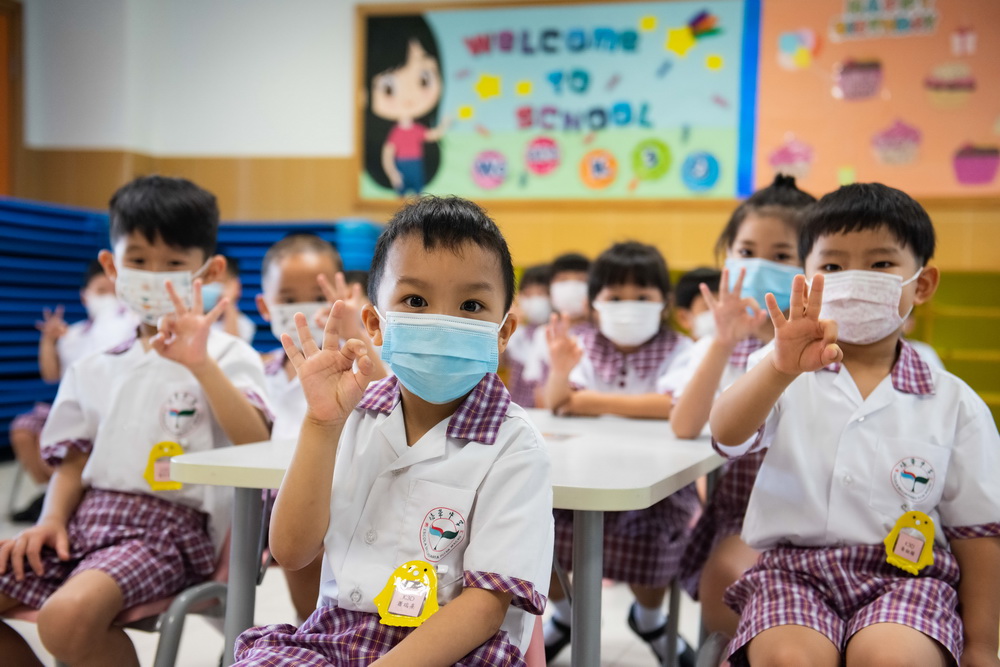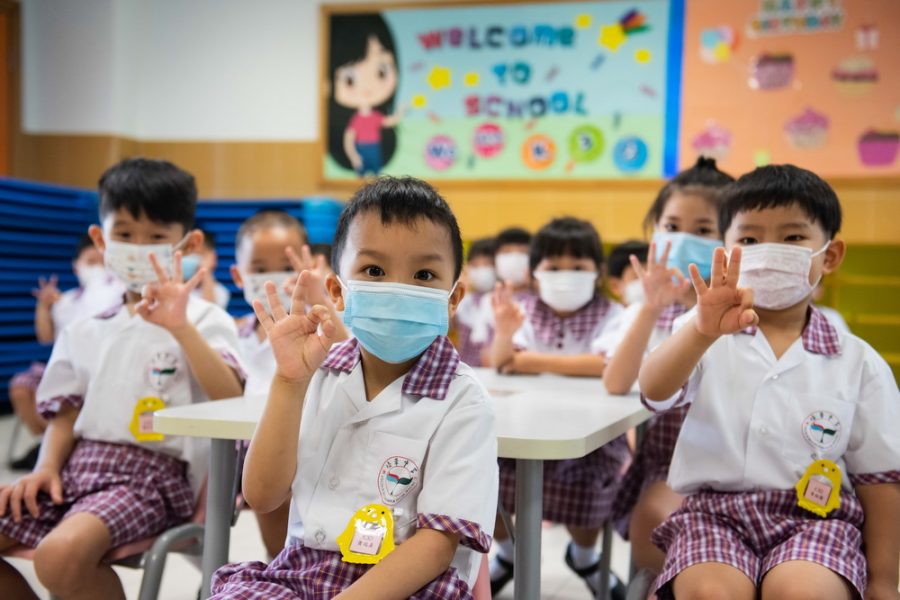About 75,000 non-tertiary education students will be covered by the government’s free education system in the new academic year which begins next Wednesday.
A spokesman for the Education and Youth Development Bureau (DSEDJ) said that 77 non-tertiary education institutions (formal and recurrent education), which comprise a total of 120 schools and their respective branches, will run in the new 2021/22 academic year.
Macao’s non-tertiary education covers both formal education and recurrent education. The 15-year formal education comprises kindergartens, primary and secondary schools, including students with special needs. In addition, a number of schools in Macao provide recurrent education at the primary and secondary education levels.
According to the spokesman, 112 out of the 120 institutions that will operate in the new academic year run formal education, while the remainder run recurrent education.
Out of the 112 institutions that run formal education, 107 will be covered by the government’s free education system in the 2021/22 academic year. As a result, 95.5 per cent of the institutions running formal education will be covered by free education, benefiting about 75,000 students.
In the outgoing 2020/21 academic year, Macao had a total of 83,984 students enrolled in 78 non-tertiary education institutions (formal and recurrent education) comprising 121 schools and their respective branches.
The bureau said last year that about 76,000 non-tertiary education students were covered by its free education system in the 2020/21 academic year. Most of Macao’s non-tertiary education institutions are privately run.
The spokesman also said that the new 2021/22 academic year will have 10 higher education institutions, unchanged from the outgoing 2020/21 academic year which had 39,093 students enrolled.
Macao’s whole education sector, namely the non-tertiary and higher education sectors, has been overseen by a single public entity, the Education and Youth Development Bureau (DSEDJ) since February this year, when two now-defunct entities, the Education and Youth Affairs Bureau (DSEJ) and the Higher Education Bureau (DSES), merged, The Macau Post Daily reported.
In related news, the government’s new regulations on schools and kindergartens’ assessments of their students will take effect for the new academic year.
According to the new regulations, schools and kindergartens should evaluate their students’ performances by combining the use of formative assessments – assessments that are constantly being carried out throughout a course – and summative assessments – namely tests and final examinations. However, the non-tertiary education institutions should primarily use formative assessments.
The bureau has pledged that it will push non-tertiary education institutions to primarily use formative assessments to evaluate their students’ performances.
The bureau has also undertaken to draft and publish its own textbooks and teaching materials for local schools. Most textbooks used by local schools are still from Hong Kong and the mainland.
The bureau has required local schools to check the weight of their students’ schoolbags at least twice on a random basis per academic year, with the aim of ensuring that the weight does not exceed the officially required maximum levels.
Meanwhile, the bureau has pledged to support local higher education institutions in strengthening cooperation with their counterparts in the Guangdong-Hong Kong-Macao Greater Bay Area, as well as enterprises and research institutions there.






